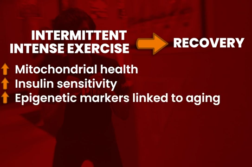ORLANDO, FL (Ivanhoe Newswire) – More than two million men and women earned a college degree so far this year. But recent data from Monster.com reveals that 75 percent of them are worried about finding and keeping their first post-college job. It turns out, getting hired is just the beginning, it’s what follows that could potentially redefine the entire course of their careers. First job
Samantha Schilke, Executive Director at Team Strength, Inc, emphasizes, “Getting your foot in the door, starting on the ground floor and really working your way up and using some really strong worth ethic in the beginning can help get you a seat at the table.”
But new hires can lose that chance pretty quickly by making some amateur mistakes.
Samantha Schilke advises, “Either you can come into a new opportunity with a little too much confidence, and put your foot in your mouth and get in your own way thinking that you’re the smartest person in the room and that can hinder your growth potential.”
It’s not just your actions that matter. Experts say over-sharing at work can keep you from moving up. Don’t share social media handles as what you post may not line up with company policy. Also, keep personal info, personal. Family arguments, venting about your partner, and details about a past traumatic experience are never good things to talk about at work. Owning up to your mistakes is a good thing, but successful people never reveal irrelevant past failures. Telling people about your failures will make them remember them.
Another rookie mistake, not asking questions.
Samantha Schilke stresses, “You have to be willing to go in there and ask questions about the things that you don’t know.”
And remember, although you’re new to the job— you do have something to offer. If you don’t speak up now, sooner or later, nobody will listen when you do.
Samantha Schilke underlines, “The most successful people that I’ve met create energy wherever they go. They don’t just bring positive energy; they create it in any room. So that positivity and that mindset of making yourself and companies better is invaluable, and it will always be invaluable.”
Another mistake first-time hires make is not having a career path mapped out. You should meet with your supervisor every 4 to 6 months to make sure you are reaching your goals. Don’t expect your employer to keep track of you. Your next promotion relies on you making the right moves.
Source:
https://educationdata.org/number-of-college-graduates
Contributors to this news report include: Marsha Lewis, Producer; Roque Correa, Videographer and Editor.
To receive a free weekly email on Smart Living from Ivanhoe, sign up at: https://www.ivanhoe.com/ftk/



